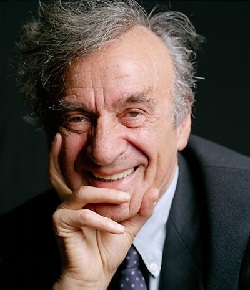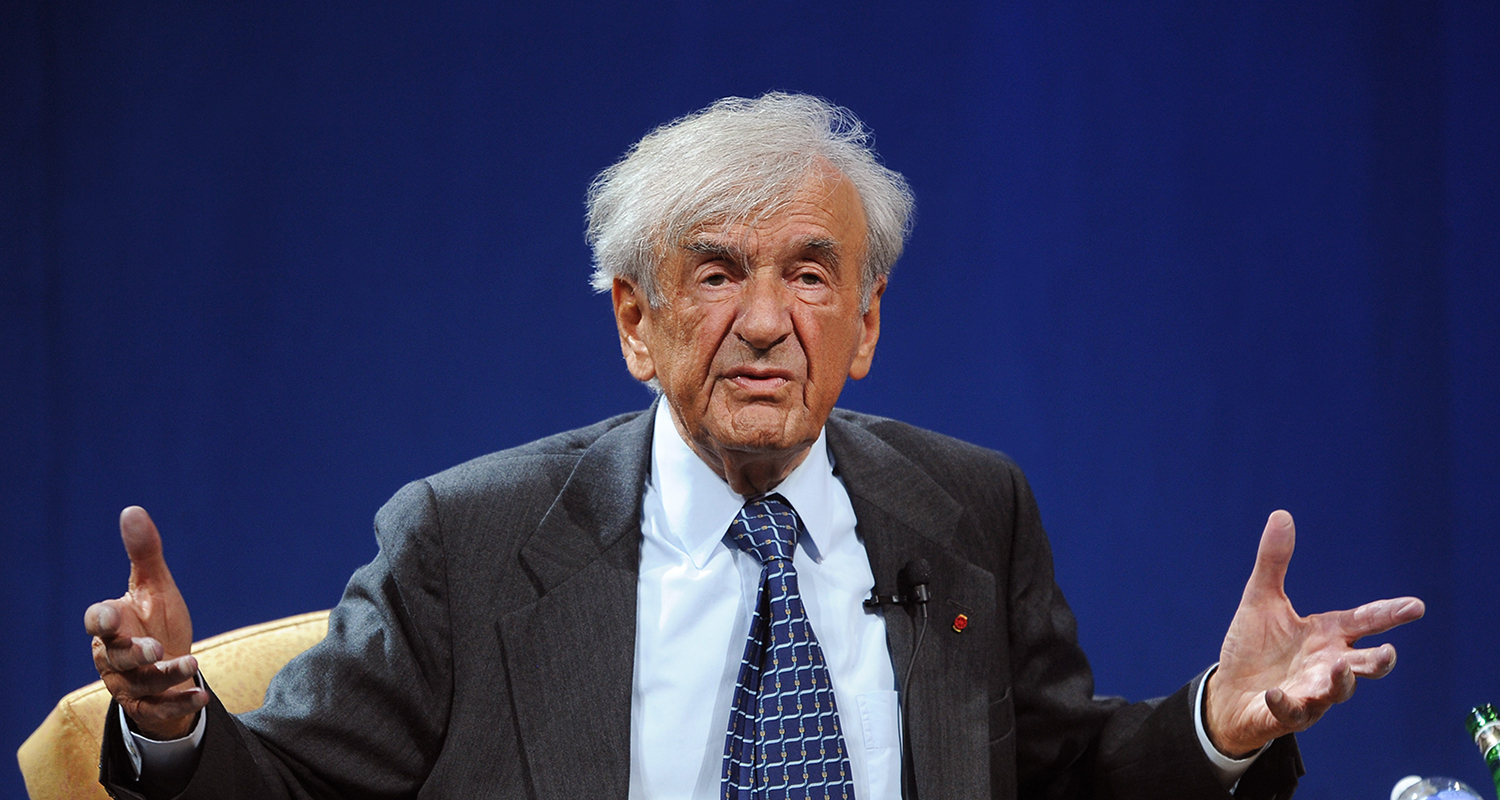Professor Elie Wiesel, z”l
 Elie Wiesel was born in 1928 in Sighet, Transylvania, which is now part of Romania. He was fifteen years old when he and his family were deported by the Nazis to Auschwitz. His mother and younger sister perished, his two older sisters survived. Elie and his father were later transported to Buchenwald, where his father died shortly before the camp was liberated in April 1945.
Elie Wiesel was born in 1928 in Sighet, Transylvania, which is now part of Romania. He was fifteen years old when he and his family were deported by the Nazis to Auschwitz. His mother and younger sister perished, his two older sisters survived. Elie and his father were later transported to Buchenwald, where his father died shortly before the camp was liberated in April 1945.
After the war, Elie Wiesel studied in Paris and later became a journalist. During an interview with the distinguished French writer, Francois Mauriac, he was persuaded to write about his experiences in the death camps. The result was his internationally acclaimed memoir, Night (La Nuit), which has since been translated into more than thirty languages.
A devoted supporter of Israel, Elie Wiesel has also defended the cause of Soviet Jews, Nicaragua’s Miskito Indians, Argentina’s Desaparecidos, Cambodian refugees, the Kurds, victims of famine and genocide in Africa, of apartheid in South Africa, and victims of war in the former Yugoslavia. For more than fifteen years, Elie and his wife Marion have been especially devoted to the cause of Ethiopian-born Israeli youth through the Foundation’s Beit Tzipora Centers for Study and Enrichment.
Elie Wiesel is the author of more than fifty books of fiction and non-fiction, including A Beggar in Jerusalem (Prix Médicis winner), The Testament (Prix Livre Inter winner), The Fifth Son (winner of the Grand Prize in Literature from the City of Paris), two volumes of his memoirs, All Rivers Run to the Sea and And the Sea is Never Full, and most recently The Sonderberg Case.

